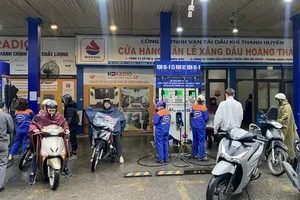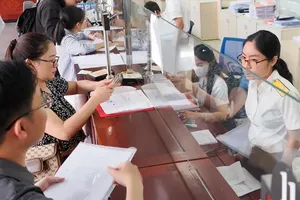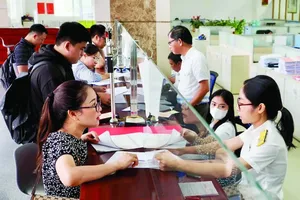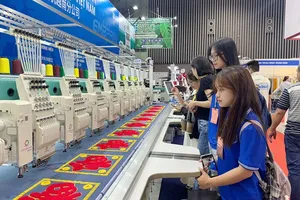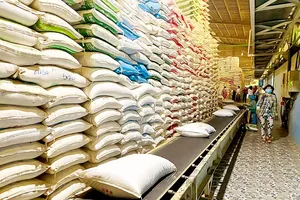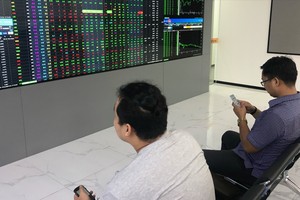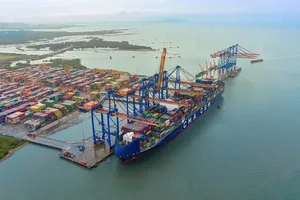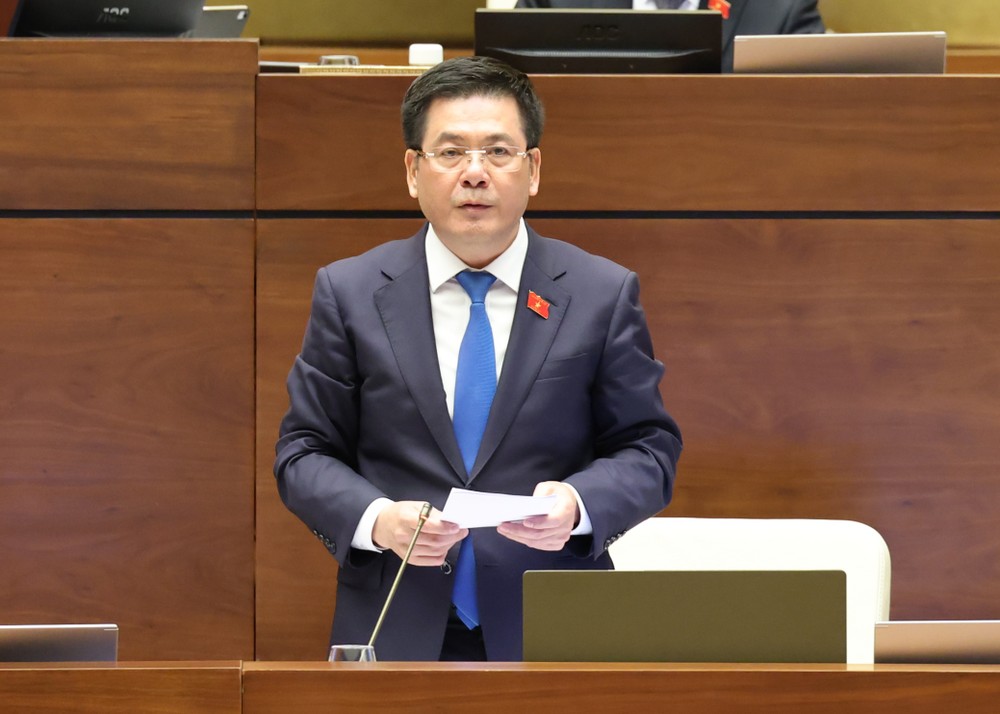
E-commerce in Vietnam is growing rapidly at an average annual rate of 20-25 percent, placing the country among the top 5 nations in the world in terms of growth rate, said Minister Nguyen Hong Dien. The scale of e-commerce has reached over US$ 20 billion per year, accounting for 8 percent of total consumer revenue in the country. However, the boom in online businesses and live streaming sales has also made it difficult for responsible agencies to manage counterfeit goods influx and intellectual property infringement on social media. With the increasing sales volume made through live broadcasting, the selling of counterfeit products has become a commonplace problem covering all kinds of categories, from cosmetics to smartphones and food.
The Ministry of Industry and Trade is studying a number of solutions to manage, monitor, and protect consumer rights in e-commerce activities. In particular, the ministry plans to supplement regulations on verifying the identities of individual sellers and providing information on e-commerce websites and applications.
In 2023, over 6,200 stalls with 23,359 counterfeit and low-quality products, and infringement of other people's intellectual property were removed and blocked by law enforcement agencies. The ministry's market surveillance forces inspected 834 cases, handled 764 cases, and imposed fines of VND 12 billion.
Answering deputies’ questions, Minister Nguyen Hong Dien said that e-commerce is facing three challenges including insecure consumers' personal data, rampant counterfeit and poor-quality goods and significant loss of tax revenue.
Specifically, the Minister said that there have been personal data leakage and appropriation when participating in e-commerce activities.
Although personal data leakage and appropriation are not popular, the Ministry of Industry and Trade has identified this problem clearly in recent times. The Ministry advised the government to submit the Law on Consumer Protection 2023 to the National Assembly, which supplements the responsibilities of organizations and individuals in protecting consumer information, such as developing information protection rules and ensuring consumer safety and security. The Minister hopes that the Consumer Protection Law, which will take effect on July 1, 2024, will contribute to addressing the above-mentioned problem.
To better manage e-commerce activities, the Ministry of Industry and Trade and the Ministry of Public Security developed the Law on Personal Data Protection. This law will encompass the e-commerce sector and mandate data security regulations for businesses and individuals. Accordingly, e-commerce platforms will be required to publicly disclose their personal data protection policies: This will enhance transparency and accountability in handling consumer data.
According to the Minister of Industry and Trade, e-commerce transactions generated a substantial value of nearly $21 billion in 2023, and tax revenue from this sector increased by over 16 percent compared to 2022. However, the Minister also acknowledged that there is still tax evasion in this area. The Ministry of Industry and Trade is actively collaborating with the tax authorities and the Ministry of Finance to share data from over 900 websites and nearly 300 e-commerce trading platforms to tighten tax management in e-commerce.
The Ministry of Industry and Trade is continuing to implement solutions to combat tax evasion by connecting data to ensure transparency in tax collection and cooperating with the Ministry of Public Security to identify sellers for proper tax collection.
In addition, the Ministry will recommend to the Government that VAT be exempted for small-value goods to prevent them from being imported through e-commerce and competing with domestic goods without being taxed. According to the present regulations, imported goods with a value of under VND1 million are not subject to VAT, while according to a survey, the four major e-commerce platforms operating in Vietnam have about $1 billion in small-value imports each year. If taxes are not adjusted, the country will suffer a certain revenue loss of tax avoidance.
The Minister admitted that managing livestreaming sales pages is very difficult and is not only the responsibility of the Ministry of Industry and Trade. There must be coordination with the Ministry of Finance (for tax collection), market management forces (detecting violations for timely handling. This activity is unpredictable, so legal regulations must continue to be adjusted, which is also a global trend. E-commerce is very strong, amounting to $20-21 billion, so there needs to be a framework to manage it.
In addition, ministries, sectors, localities, and residents need to join hands to prevent violations of the law in this field.
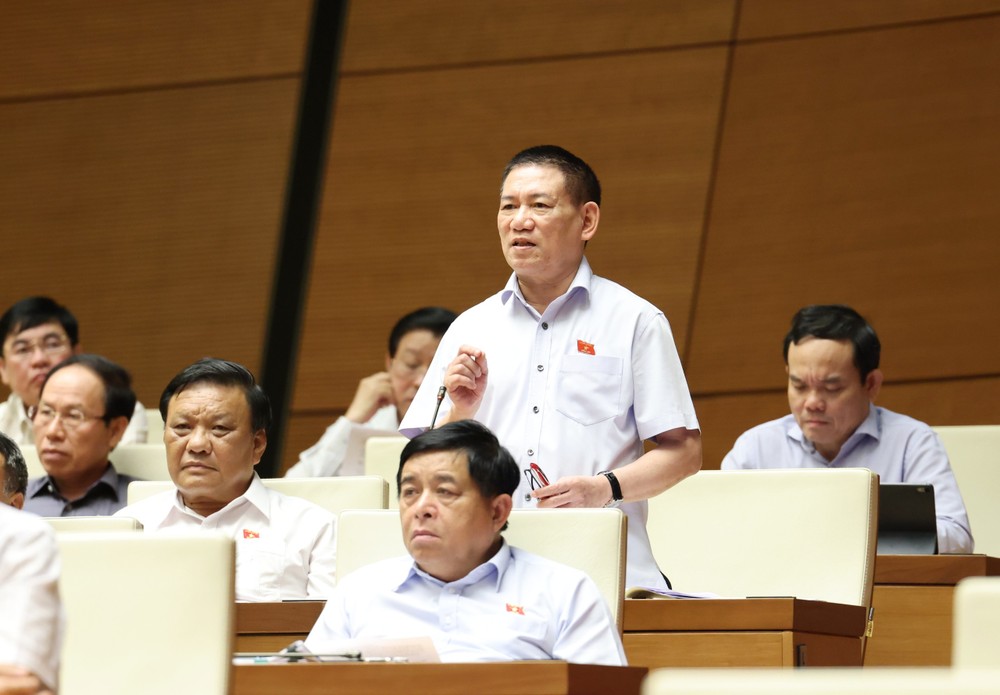
According to Minister of Finance Ho Duc Phoc, in response to the Government's request, the Ministry of Finance has applied tougher measures to collect taxes from e-commerce platforms.
To achieve this, the Ministry has opened an electronic portal on cross-border floors to guide organizations and individuals in paying taxes. As a result, in 2022, VND 83,000 billion was collected and in 2023, VND 97,000 billion was collected, plus VND 50,000 billion was collected in the first 5 months of this year. Currently, 96 foreign suppliers such as Facebook, Google, and Tiktok have so far registered and paid taxes at the Ministry of Finance's electronic portal on e-commerce. These large corporations have paid VND 15,600 billion in e-commerce taxes.
The Ministry of Finance has coordinated with the Ministry of Industry and Trade, the Ministry of Information and Communications, the State Bank of Vietnam, and the Ministry of Public Security in tax collection. Accordingly, the connection to the population database has reached 71.37 percent with 663,157 connections to the Ministry of Public Security's population database; managed and shared with the Ministry of Industry and Trade 929 e-commerce floors; inspected and compared 361 e-commerce floors for connection and management. The State Bank has provided 144 million accounts, of which about 10 million accounts are of organizations, and the remaining 134 million individual accounts in 96 banks.
Minister Ho Duc Phoc said that in the future, the Ministry of Finance will step up the implementation of a synchronous approach to tax collection on e-commerce floors, focusing on tax collection in Hanoi and Ho Chi Minh City. The Ministry also directs the tax authority to support the implementation of tax collection on e-commerce floors to ensure fairness in the matter of fulfilling obligations to the State.
Regarding import and export, the Ministry of Finance has directed customs to implement "Smart Customs" and become a member of the World Customs Organization. The Ministry of Finance has also deployed electronic payment in full, and electronic tax filing, to combat smuggling and professional customs clearance. In the coming time, the Ministry will continue to promote the application of information technology in customs activities to facilitate business' registration.
